Nursery: Green Shoots
By
3 years ago
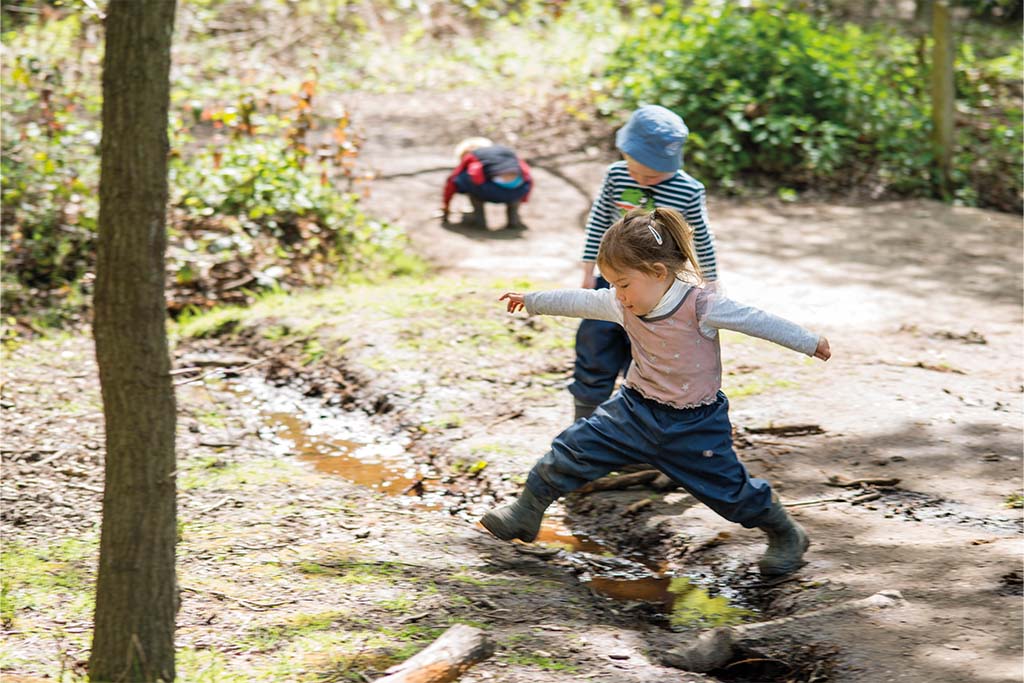
The natural world takes centre stage at these nurseries, says Emma Reed, where children are encouraged to explore and enjoy their surroundings
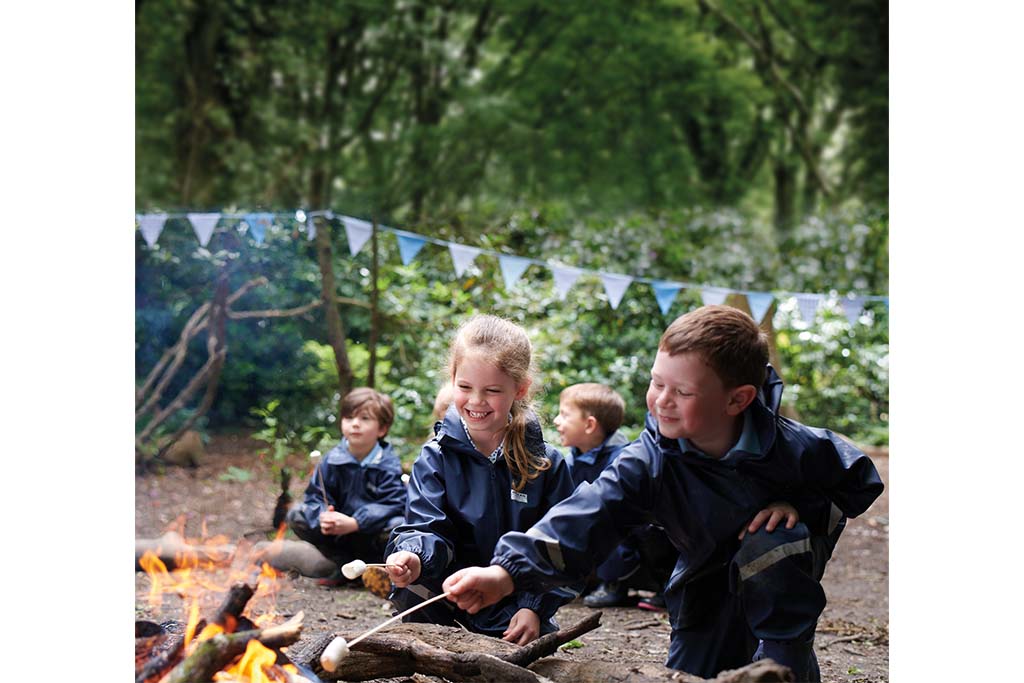
‘Nobody is going to protect the natural world unless they understand it.’ David Attenborough’s words feel more urgent than ever. It’s a stark fact that a heavy environmental burden lies on the shoulders of the younger generation as they face unscrambling the mess created by the older one. While a lot of hot air is expended in arguing how best to protect the planet, how refreshing it’s been to gain an insight into those places taking practical steps to educate those taking custody of its future. Welcome to the world of the ‘eco nursery’.
The ethos behind Little Forest Folk, with nurseries across southwest London, is clear: ‘We want to raise a generation of young people that understand the benefits of the natural world and are motivated to protect it.’ They are distinctive in that everything takes place outdoors from daytime naps in sleeping bags and tents to toileting. Children are appropriately kitted out for the seasons and only in extreme weather is their indoor facility used. ‘If nurseries and primary schools in Scandinavia can spend the majority of the time playing in the woods in their challenging climate, we can certainly manage it in London.’

Conor Williams, the Training Lead at Little Forest Folk, told me how, at the end of the academic year in 2021, their Twickenham nursery achieved its Green Flag Award, an international accreditation that recognises and rewards the environmental actions of young people. This was no mean feat given the pandemic. To achieve this, the nursery created an Eco Council made up of children who carried out a review and judged the nursery on a range of environmental areas, choosing three they wanted to focus on through the year: waste, litter and global citizenship.
‘What was lovely to see was that the children took ownership over it and became so passionate about looking after the environment without it being anything other than normal to them,’ says Williams. Children have taken part in litter picks, planted fruit and vegetables that they have harvested and cooked, and made cardboard boxes into toys before recycling. ‘Feedback from parents has been really positive,’ says Williams. ‘Parents donate things to us rather than throwing them out and we’ve seen more parents walk, jog or cycle with their children to nursery instead of using cars.’
Dean Park Day Nursery in Bournemouth benefits from its location, surrounded by six acres of land within the historic Dean Park cricket ground. Children here work towards a ‘Sustainable Citizenship’ award by
working through an ‘i-care’ booklet. Rebecca Ballington of Dean Park decided to introduce this system after coming across the OMEP (World Organisation for Early Childhood) award during lockdown. ‘It’s more than just ticking off a list of completed activities,’ Ballington says. ‘It’s about embedding the knowledge and working within the three pillars of sustainability: socio-cultural, environmental and economic.’
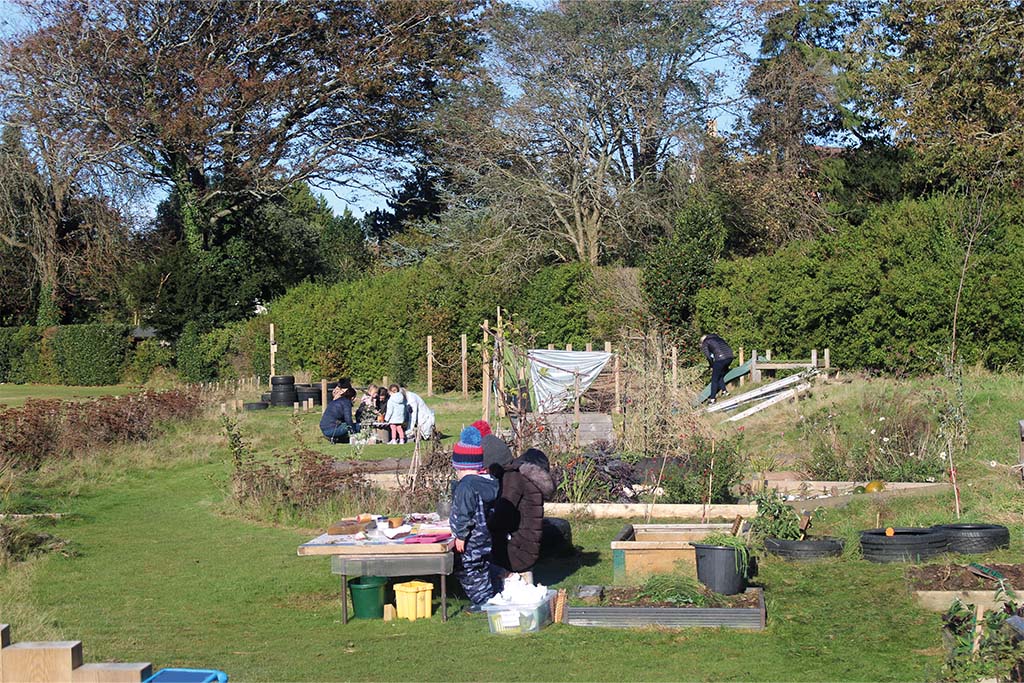
Here, a whole range of initiatives has been implemented. These include teaming up with a local artist and going on a beach clean and creating artwork; introducing a mending station where books and puzzles are repaired; setting up recycling signs and bins; using glass bottles for milk which are sent back to the supplier; converting to using bars of soap rather than pumps; and upcycling products where possible such as the tyre mountain where children enhance their gross motor skills climbing to the top.‘We also have a Forest School which we’re immensely proud of,’ says Rebecca. ‘The children are truly close to nature which we teach them to value. We have visiting foxes, birds and a pond, and the children learn to respect this.’
Another place that benefits from its location in acres of parkland is Grimsdell, Mill Hill’s Pre-Prep school. Lorraine Staniford, Grimsdell’s Forest School co-ordinator, says that taking part in regular Forest School sessions means, ‘the children develop a more rounded educational experience, as well as a deeper understanding of the world and environment around them.’
Young children’s sense of wonder in the natural world is fostered by the sense of a magical environment where their imaginations can run wild. ‘The Cabin’, completed in 2019, also provides a sheltered learning environment where there are secret hatches opening on to the Science Garden. Binoculars are available so that children can observe nature without disturbing it. The children’s efforts in looking after their environment by recycling more, turning off taps when brushing their teeth and turning off lights have earned them a Green Blue Peter Badge.
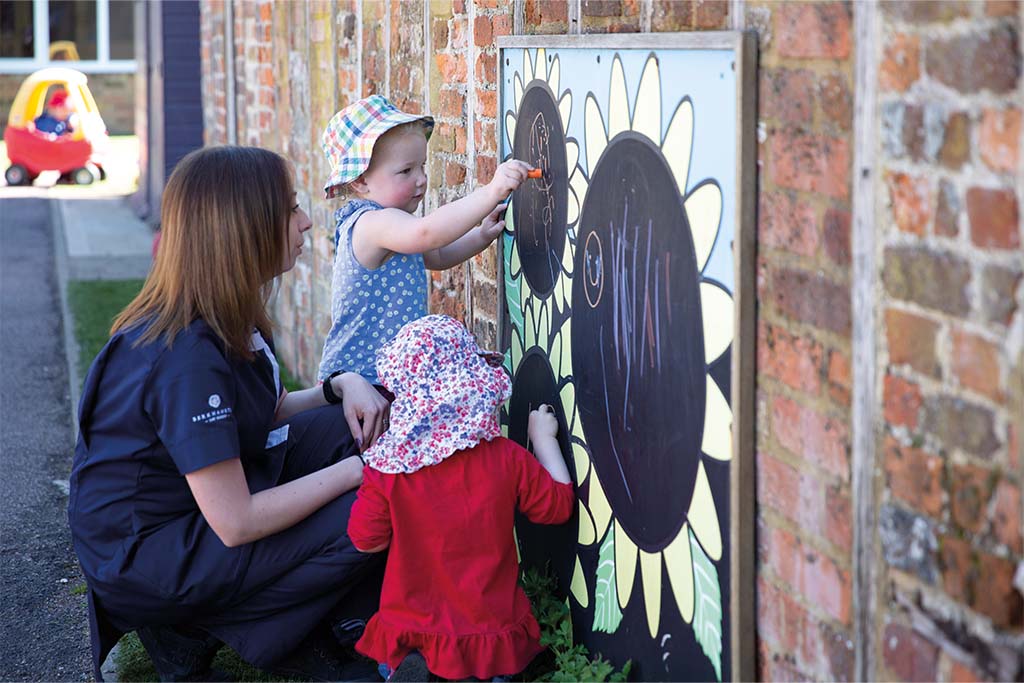
Berkhamsted Day Nursery also makes use of its eight-acre site alongside the Pre-Prep ensuring that regular walks are taken in the grounds to hunt for ‘minibeasts’ in the woods or admire the cows in the fields.
But an urban setting does not hold back nurseries from teaching young children how to respect and care for their planet. Georgina Hood of Paint Pots, a Montessori nursery based in Notting Hill, Chelsea and Hyde Park emphasises that, ‘Paint Pots invites and encourages children to appreciate our natural world and adopt a sense of responsibility for planet earth in all areas of our curriculum.’
The children’s interest in deforestation and orangutans has been helped by reading There’s a Rang-tan in my Bedroom by James Sellick, prompting discussions about palm oil and the issues surrounding it. The children are also holding a sale of clothes they have outgrown, and the proceeds will be donated to an orangutan charity.
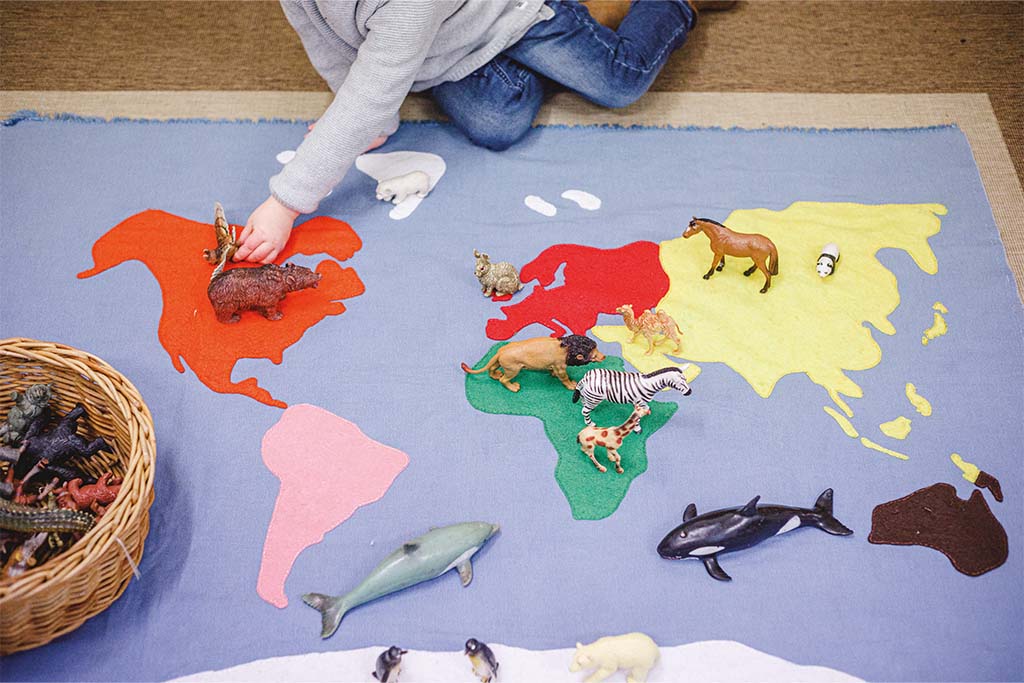
Zanna Clarke, who has been head of Pre-Prep at Eaton Square for 20 years and is now principal of the Miss Daisy’s group (all owned by Dukes Education), has seen how the children have benefitted from using the local squares and green spaces that London offers, with access to a weekly Forest School. Trips are also taken to the Chelsea Physic Garden.
Clarke has worked closely with designers House of Kin (who also worked on the Maggie and Rose children’s clubs) where the emphasis is very much on bringing the natural world inside.
Instead of the overstimulating bold colours and plastic we are often used to seeing in nurseries, Clarke has sought to bring in colours and materials that reflect the natural environment. Eaton Square has achieved its bronze and silver eco status and is now working towards its gold. Clarke remarks how young children are like ‘absorbent sponges’, very much switched on to learning how to protect their planet. They find it empowering.‘If you can educate the children, you can educate the parents,’
Clarke notes.
There is much we can learn from them, and, from the efforts of these nurseries, it feels as if the future is going to be in much safer hands.
READ MORE FROM SPRING SUMMER 2022 NURSERY SECTION
Far From the Madding Crowd | Homework for Parents



